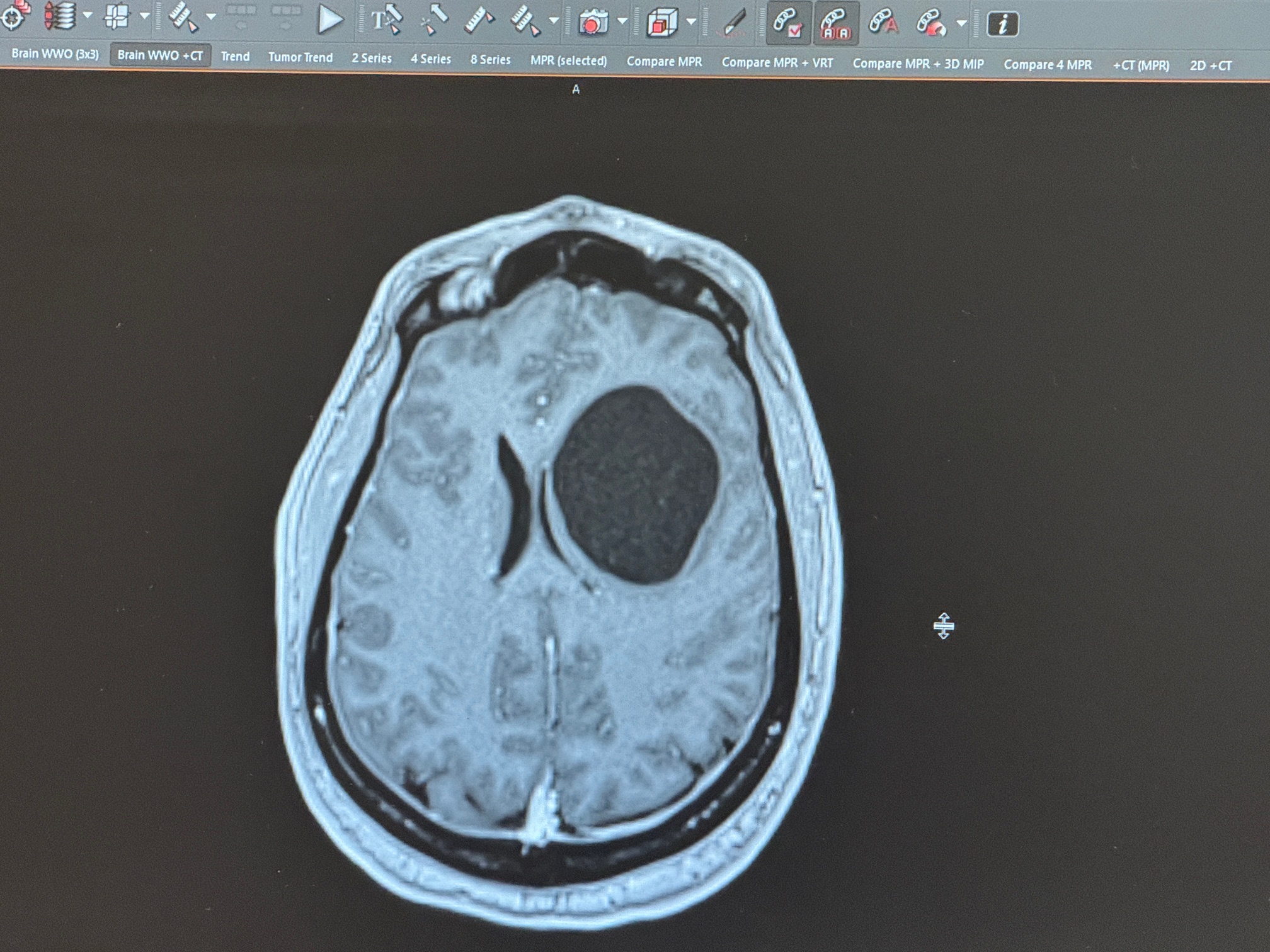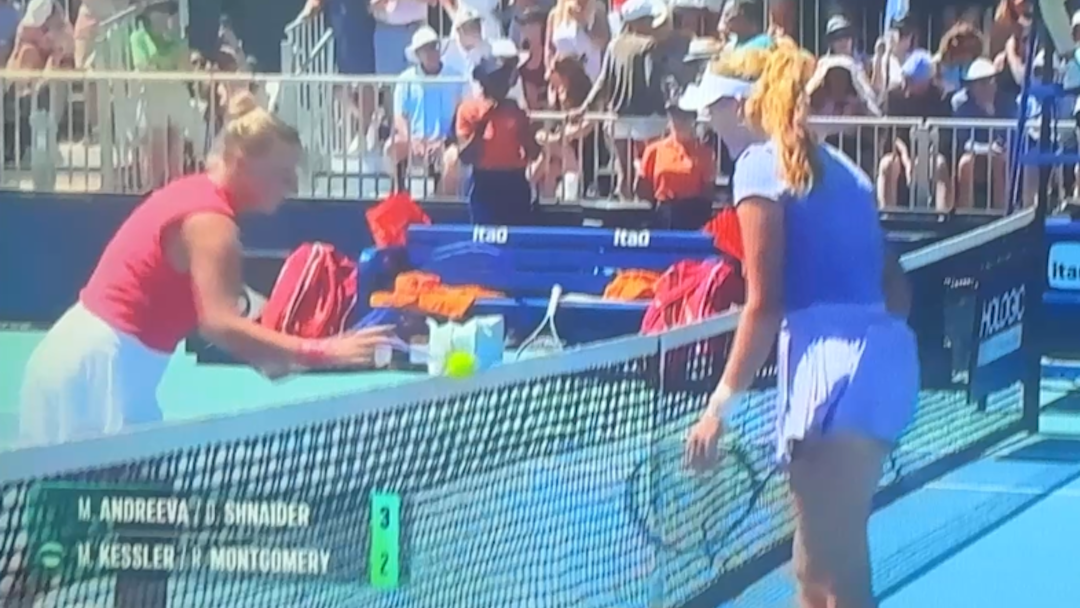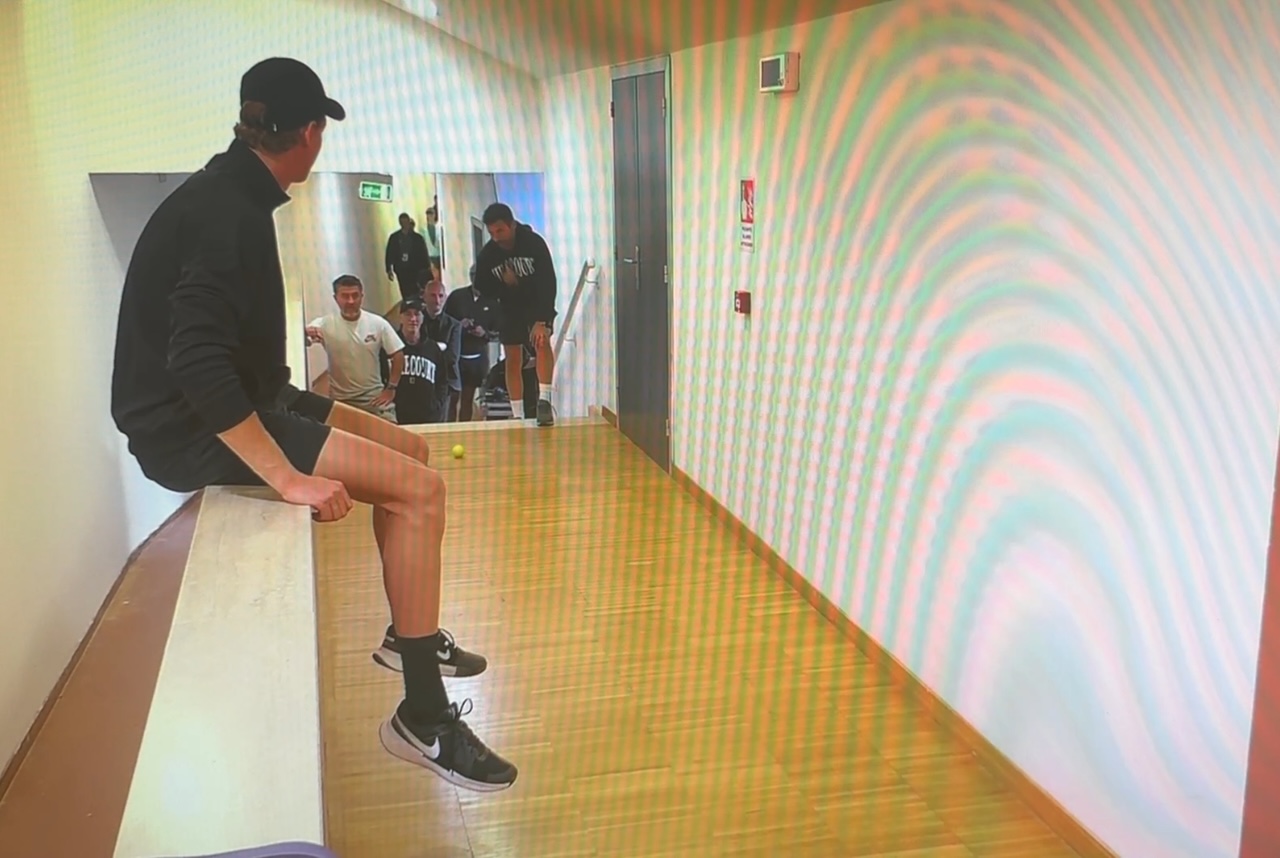Last weekend I attended the 2023 USTA Texas Annual Meeting. Excluding the times I wandered through the conference ballroom looking for my Mom when I was in my teens, this was my second time attending a USTA Texas Section meeting. My first conference last August prompted a series of posts that highlighted opportunities to improve the experience of new volunteers. I am happy to report that this recent meeting went much better than my first foray.
During the USTA Texas Board of Directors meeting on Sunday, President Kevin Collins made a remark that resonated with me. I didn’t capture the exact quote, but the hieroglyphics that constitute my penmanship in my notes are underlined, circled, and terminated with three exclamation points. In essence, Collins observed that we can change our beliefs and our minds. That is most efficiently done through discourse and dialogue.
This weekend I am revisiting some topics where my thinking has evolved significantly since my original posts. With an intentional nod to a recent public philosophical shift by Marie Kondo, anytime my thinking on a topic changes, it genuinely sparks joy. I am a work in progress and hope that remains the case for the rest of my life.
After my first term volunteering for the USTA in my local Section, I went through some serious soul-searching when deciding if I would apply for a role in the following term. A couple of close friends who served on the same team that I did last time walked away with a “never again” attitude. It was… not a great experience. Ultimately, I resolved that even though my expectations of enjoying the volunteer work were low, it was still important to stay engaged.
My trepidation was unfounded. Last weekend was a completely different experience. It was invigorating to be around so many people who are completely devoted to building and promoting tennis. I walked away from the meetings completely inspired by the open communication and teamwork exhibited throughout the weekend.
The committee application in USTA Texas for this term asked for self-identification of my “Enneagram” type. For the record, I am a Type 8 “Challenger” which should not be at all surprising to anyone who regularly reads this blog. (For Myers Briggs adherents, I consistently test as INTJ.) As I was checking that box on my application, I was concerned that these personality types might be used as a basis for committee selection. My perception of the historical culture of the USTA is that “Challengers” are not generally appreciated.
As it turns out, my Challenger status was reflected by a sticker on my conference badge. I think that information was intended as a guide to help us all work better together as a team. The sticker for the Challenger type was purple. Quite frankly, it probably should have been bright red and larger. People arguably deserve a warning when a Challenger is bearing down on them.
Consistent with what the psych tests suggest about my personality, this blog is filled with strong ideas. I should probably mention from time to time that my thinking is not set in stone and that I delight when alternative viewpoints are brought to my attention. It is the essence of growth. Challenging assumptions and constraints is woven into the very fiber of my being. So is continuous learning.
I do not ever want to offend anybody. However, as a Type 8 Challenger (and INTJ), with all the social graces of an engineer, it is likely that this happens more frequently than I am aware of. If so, I apologize with as much sincerity as a Type 8 Challenger can muster.
Please feel free to tell me when you think that I am wrong. My thinking may or may not evolve on that direct information. However, dialogue and debate will certainly bring us to a better appreciation of each other’s perspectives.
While some aspects of tennis appear to be thriving, parts of the ecosystem are in serious crisis. It is going to take all of us working out of the box to stave off disaster. Pushing boundaries and challenging assumptions may be the best path to a brighter future. With the right attitude, it certainly doesn’t hurt anything.




In this highly relevant column, Teresa writes, “I am revisiting some topics where my thinking has evolved significantly since my original posts.”
In my first book, “Tennis Confidential: Today’s Greatest Players, Matches, and Controversies,” I wrote an essay titled “Analyze This! How to Think Smart About Tennis Issues.”
For an epigraph, I selected an aphorism that applies to the tennis world—both its leaders and followers. “The main dangers in this life are the people who want to change everything—or nothing.” This aphorism comes from Mary Astor, the first woman member of Parliament in England (1879–1964). As both exercises in thinking and practical tests, I presented five arguments about topical tennis issues and their rebuttals.
Abraham Lincoln’s thinking also evolved significantly over time. When Lincoln was once asked why he changed a position he espoused with fervor for many years, he answered that he would rather be wrong about something for half his life than for his entire life.
On the subject of rule changes and the contending schools of thought, I wrote, “Just as traditionalists should not be derided as head-in-the-sand, do-nothing reactionaries, reformers need not be dismissed as crazy radicals hell-bent on turning the game upside down.”
I also wrote, “Tennis should support beneficial and fair reforms—as well as traditions—and oppose the contrary.”
This credo is the guiding light for the essays—that analyze in-match coaching, the service let, the ranking system, and several other controversies—in my coming book, “Tennis Confidential III.”
Open-minded debate, enriched by a deep knowledge of the great issues and sound logic, will best advance the sport we love.
Thanks for the comments, Paul. It is always a thrill to receive feedback and perspectives from a serious tennis writer!